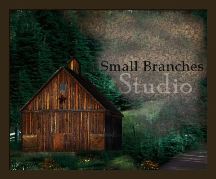In the last two or three days, I've had three types of poetry publications land in my lap. First of these is The Imaginary Poets from Tupelo Press. Next, I picked up the Complete Poems of D.H. Lawrence while at a local bookstore, and in the mail today was the January issue of Poetry.
The Imaginary Poets, from Tupelo Press, is an anthology of translated poems, bios, and translator's statements, all of which are, as you might have guessed, sprung from the imagination of the poet. Unless I've been reading in all the wrong places, it seems to me that "persona" poems have been out of favor in preference to poems of authenticity, realism, and poems of the experimental persuasion. So, to see an entire anthology that not only prints but demands what amounts to a collection of persona poems is quite refreshing. But the authors had to go beyond the poem, and consider how their imaginary person might have lived, who their influences were, and how this imaginary world coincided with the author's real world. I imagine that the poems along with their respective essays tell us more about the true author than the poems alone, about the poet's area of scholarly interest perhaps or of a formative trip abroad or notable life experience. When this anthology appeared in my lap, I meant to flip through a few pages and then set it aside to be experienced later, but I found myself reading entry after entry in their entirety. There is more to be discussed about this anthology, and if time permits, I'll write a fuller review in the near future.
The new issue of Poetry has poems by Billy Collins and Tony Hoagland (and more, of course!) I was suprised though by Hoagland's "Cement Truck," I thought at first that I was reading Collin's writing. It's all there, the trademark slyness of Collins, the slight tone of poking fun at one's self, the witty description; it reminds me a bit of the way that Collins's "Workshop" works, conjuring images. The other two Hoagland poems were satisfactory, and Collins's work was much as you'd expect: one pokes a bit at ancient Chinese poetry ( and perhaps our fascination with it) and the other at Valery. As far as influence goes, it's interesting to see how much we like to turn to other cultures to give ourselves a little boost. Perhaps this is what Collins is really poking fun at, or maybe he's illustrating how little culture matters in the end; we find the poetry we need no matter where it comes from.
There is also an interesting exchange about the role of the designator "woman's poetry," and I am not sure how to feel about that label. I'm post-women's lib, and I've never felt that there was anything holding me back because I am a woman, but I realize it hasn't always been this way. I've read Rhys's Wide Sargasso Sea and found the desire to burn down the hallowed halls (which I take to be of the canon) a little disturbing. I've read H.D's Bid Me to Live and understand that she was at times discouraged from writing. I've read Rich's Snapshots of a Daughter-in-law, and plenty more. Yet, I have to say the canon is what drew me to literature in the first place, even if much of it was writen by white guys. If I hadn't first read Shakespeare, I'd not have ended up in a Modern poetry class reading Rich and Bishop, if I hadn't been in the Modern class, I might not have started reading more contemporary poetry. I know that women are still less likely to submit and less likely to win the big awards, but there are women writers out there that demand to be read. So do we need a label "women's poetry?" I still don't know.
And speaking of white guys, and ones who weren't always on their best behavior. . .I've been flipping through D.H.'s Complete Poems. I am reminded of a field of wildflowers that has been mown and every stem crammed into a vase, obliterating the perfect, delicate blooms that must have flourished in the field. If I had come to D.H.'s work only through this collection, I'm afraid I would have set it back on the shelf. But, luckily, I know of a few poems that must be read, like "Snake" and "Piano," so I plan to winnow further to see if there are others there that can equal these.
Subscribe to:
Post Comments (Atom)




No comments:
Post a Comment